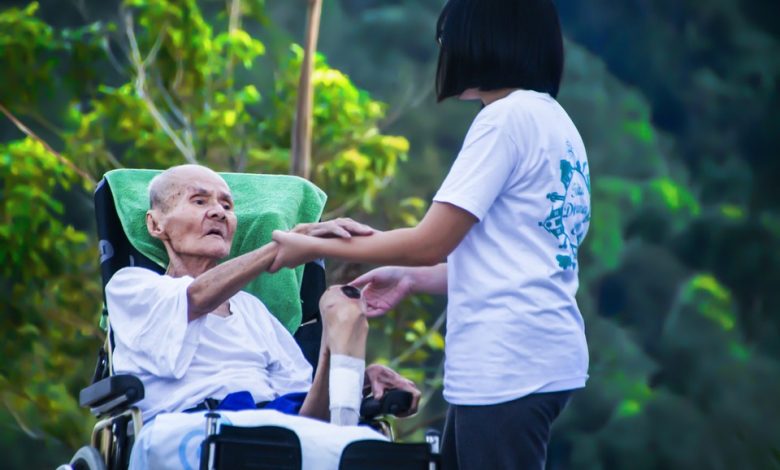Mommy/Daddy, I want to be A Social Worker: Whither the Trained Social Worker Profession?


By Dato’ Dr Amar-Singh HSS
Consultant Paediatrician, Child-Disability Activist
Conversation in a family:
Daughter: “Mommy/Daddy, I want to be a Social Worker”.
Mother: “What in the world is that? If you do not want to be a doctor or a lawyer, consider taking up Speech & Language Therapy or Psychology! At least you’ll get a job and serve the community.”
In a nutshell this encapsulates the Social Worker profession’s conundrum. One of the most valuable and meaningful professions and occupations in the world is almost unheard of in Malaysia. Sure, we have all heard of people ‘doing social work’, either in non-governmental organisations (NGOs) or in the Welfare Department (JKM) but few of us have heard of professionally trained Social Workers. Hence, very few young people aspire to join this noble profession in Malaysia. As a result, we continue to struggle with many social issues.
Perhaps it is important to take a step back and describe what the difference is between someone who ‘does social work’ and a professionally trained Social Worker. Anyone can do social work but professionally trained Social Worker undergo a university training and are formally trained in counselling. The table below briefly summarizes the differences.
Table: Key distinction between someone who engages in social work and a professionally trained Social Worker.
| Professionally Trained Social Worker | Someone who does social work | |
| 1. Education & Training | Holds a formal Diploma, Bachelor or Master Degree in social work. Their education equips them with knowledge about human behaviour, social systems, ethics & intervention strategies. They undergo supervised field placements to gain practical experience. | Individuals who engage in social work without formal training may lack the comprehensive understanding of theories, practice models, and ethical guidelines that professional social workers possess. |
| 2. Scope of Practice | Their scope of practice is broad and multifaceted. They work across various settings, including welfare offices, schools, hospitals, mental health clinics, and community-based organizations. Social workers address diverse issues such as poverty, disability, substance abuse, domestic conflicts, and child welfare. | Their involvement may be more limited. They might assist informally within their community or focus on specific issues they are passionate about. |
| 3. Skills and Competencies | Possess a range of skills, including assessment, case management, counselling, advocacy & policy analysis. They integrate these skills to provide holistic support to clients. | May have good intentions but might lack the depth of skills needed to address complex social problems effectively. |
| 4. Ethical Framework | Adhere to a code of ethics that guides their professional conduct. They prioritize client well-being, confidentiality & social justice. | May not be aware of or follow a specific ethical framework consistently. |
| 5. Legal Authority | Often have legal authority to intervene in cases of child abuse, neglect, or domestic violence. They can make social work diagnoses and advocate for clients. | Lacks this legal authority and may not be equipped to handle legal aspects of social work. |
| 6. Advocacy & Systems Change | Engage in advocacy to promote social justice and challenge systemic inequalities. They work toward policy changes and community empowerment. | May not actively participate in advocacy efforts or understand the broader impact of systemic issues |
In summary, while both individuals contribute to social well-being, a professionally trained Social Worker brings specialized and standardised knowledge, skills, and ethical grounding to their practice.
As a Paediatrician, I could not effectively support children and families without the assistance of my trained Social Workers colleagues in the Ministry of Health (MOH). I often involve trained Social Workers when we had families where there was child abuse, children with disabilities, adolescent crisis, social and financial issues, families in poverty, domestic violence, young persons in conflict with the law, refugees and other vulnerable people. They supported my work by doing home assessment, counselling, served as the client’s advocate, assisted to secure resources (e.g. equipment; money for rare medication), evaluated and monitored progress and improvement, etc.
While studying/working in the United Kingdom I saw how trained Social Worker formed the backbone of the social services and were of great assistance to health, education and other ministries. This is true of most developed and developing countries.
Hence, we need to ask “Whither the Trained Social Worker Profession”? What is happening to such an important profession in Malaysia? Is the Government giving any importance and focus to such a vital profession by promoting career pathways and job opportunities?
Currently, there is sadly no data on the total number of professionally-trained social workers serving the Malaysian community. A Malaysian Administrative Modernisation and Management Planning Unit (MAMPU) study in 2019 suggested a ratio of Welfare Department social workers to Malaysia’s population of 1:8,576. But note that may be misleading as the majority of JKM staff are not trained social workers. For comparison, the trained Social Worker to population ratio in selected countries is 1:490 in the United States, 1:1,040 in Australia, 1:3,025 in the United Kingdom and 1:3,448 in Singapore. This underscores the crisis.
There are only 11 public and private institutions of higher learning in Malaysia offering training in social Work. Very small number of trained Social Workers are produced yearly. Even worse, the number of job opportunities for trained Social Workers in the critical ministries of Welfare (JKM), Health (MOH) and Education (MOE) are very limited.
Another critical issue is that social work remains unregulated in Malaysia. Our neighbouring ASEAN countries like the Philippines, Singapore, Thailand and Indonesia have formal legislation to support the development of the Social Worker profession. Malaysia has a Social Work Profession Bill that was first approved by the Cabinet in 2010. It however awaits parliamentary action, is currently still under review by the Ministry of Women, Family and
Community Development and is hoped to be finally tabled ‘after outstanding issues have been resolved’.
Hence, we are in the ‘chicken or egg’ situation.
No formal legislation to support the development of the Social Worker profession.
No concerted governmental push to grow the Social Worker profession base (training).
Insufficient job opportunities for trained Social Workers.
Hence the limited number of ‘takers’ for the profession.
Our public and youth are hence not aware of such a vital profession as a career path.
The work done by the Malaysian Association of Social Workers (MASW) and United Nations Children’s Fund (UNICEF) in Malaysia highlighted through the ‘Heroes Among Us’ campaign has brought to light the plight and resilience of social workers in Malaysia and their crusade in keeping children and vulnerable people safe and secure in this country. Through this campaign, they aim to raise awareness of the vital role that social workers play in the lives of children, families, and communities in Malaysia.
This letter is not to undermine the importance and valuable work done by those who ‘do social work’. But to call for the urgent need to promote and develop the Social Work profession framework and more importantly, to have the Social Work Profession Act in place to ensure all the above mentioned issues will be eventually addressed. We must work together towards training a large number of professional social workers in the coming years to meet the basic needs of our community.


